Another few weeks, another foray into the world of women authors of the 1970s. This time, my subject is women SF writers whose names begin with I or J and who debuted in the 1970s¹. There also three previous instalments in this series, covering women writers with last names beginning with A through F, those beginning with G, and those beginning with H.
This week’s instalment is short due to a peculiarity of (primarily) Anglophone surnames that I notice every time I look at my bookshelves. For some reason, there aren’t many authors whose surnames begin with I or J. When one filters by debut date, the resulting set is downright tiny. I once suggested to a publisher that they rename some of their authors so the distribution of surnames by initial was more equitable, but I fear this was greeted with the same lack of enthusiasm as my suggestion that all editors be ear-tagged to make voting on the Best Editor Hugo more convenient for me. Progress is hard.
Still, “not many” is not “none.”
Eva Ibbotson
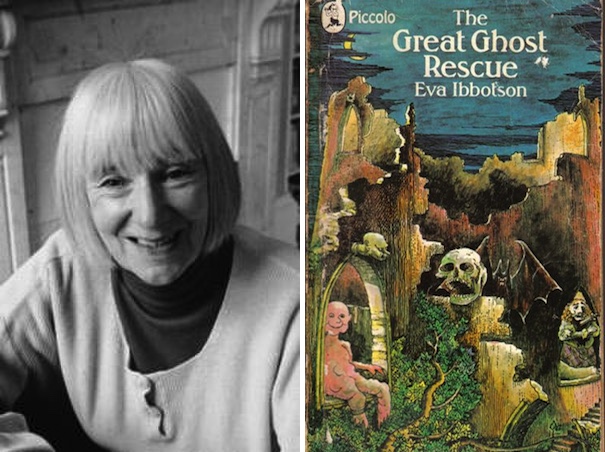
Eva Ibbotson’s books tend to fall into one of two groups: genre and aimed at children, and non-genre aimed at adults. Still, it’s a miserable adult who cannot occasionally enjoy a children’s book². Readers new to Ibbotson (or perhaps children of readers new to her) might enjoy her 1975 The Great Ghost Rescue³, in which a family of Scottish ghosts (most of whom suffered violent deaths, as Scots often do) are forced to deal with a sudden housing crisis.
Marie Jakober
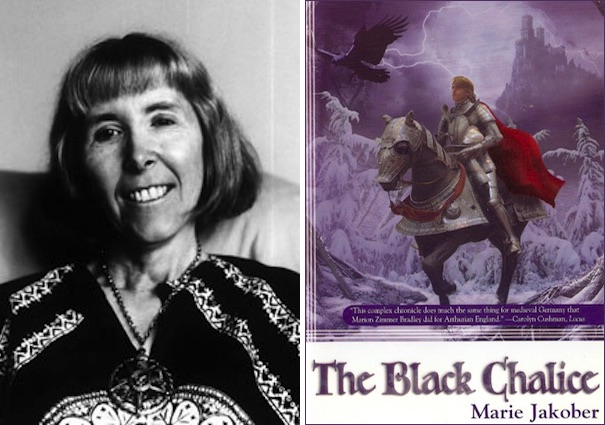
Marie Jakober (who passed away just a little over a year ago) was an award-winning Canadian author perhaps better known for her historical novels than for her genre work. Still, F&SF readers may find 2000’s The Black Chalice, in which a judgmental 12th century monk is cursed to write only the truth, of some interest.
Diana Wynne Jones
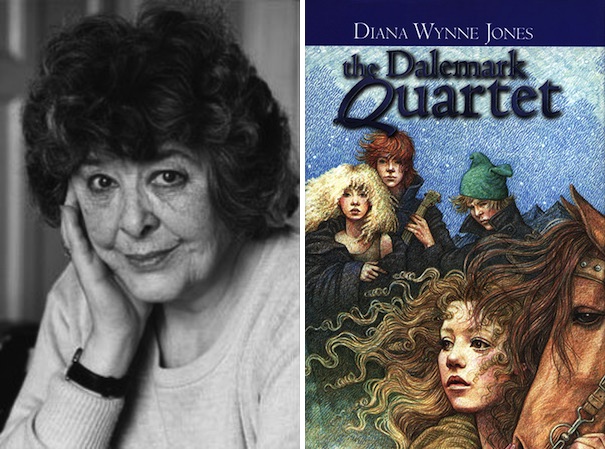
Diana Wynne Jones was prolific and talented, which makes singling out a particular work as a starting point especially problematic. The fact she’s the subject of one of my review projects doesn’t help, as it only expands the number of worthy candidates. Although it is a bit of a cheat, what I would recommend is not a single novel but an omnibus: 2003’s The Dalemark Quartet. It is composed of four early secondary-world fantasy novels that recount the history of troubled Dalemark, from its age of legends to a quasi-medieval period thousands of years later.
Gwyneth Jones
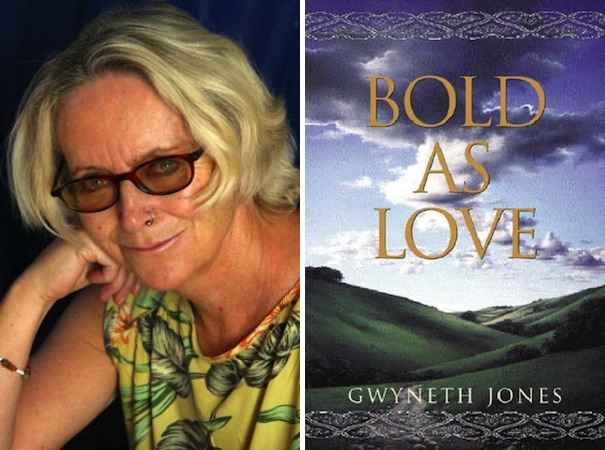
Habitual award nominee Gwyneth Jones’s novel Bold As Love won the 2002 Clarke. Bold As Love is a retelling of the Arthurian mythos, recast from a chaotic and violent post-Roman Britain4 to an equally chaotic and violent futuristic Europe.
Erica Jong
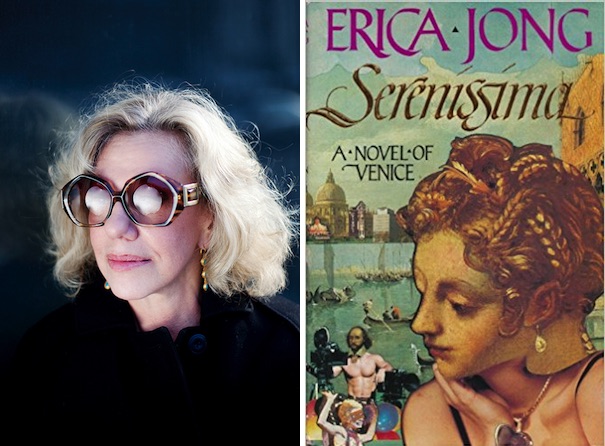
The inclusion of Erica Jong may surprise some of you. Many because you’ve never heard of her and others because you’ve only heard of her in the context of the 1973 second-wave feminist novel Fear of Flying and its discussion of a certain kind of copulation—one that is absolutely pure, free of ulterior motives, and rarer than the unicorn.
Jong also wrote a small number of genre-related works, among which was the variously titled time-travel novel Shylock’s Daughter, AKA Serenissima. A rather privileged modern-day (well, Reagan-era, now thirty years in the past) actress travels back in time to meet Shakespeare himself.
* * *
This installment’s list of shame-on-James authors is short, because the essay itself is so short. Although I am sure the following authors have works of interest, it just so happens that I have not encountered them. Suggestions on where to begin appreciated!
1: This series only covers women whose published careers began between 1970 and 1979. If their career began before 1970 or after 1979, then they fall outside my target range. Because I am concentrating on women whose surnames begin with I or J, I am excluding all women whose surnames begin with A through H and K through Z. For example, Lee Killough is a fine author, but since K is neither I nor J, she is not listed here. Similarly, Shirley Jackson is omitted because, although her surname does being with J, her career began long before the 1970s.
2: If you are worried about judgmental looks while reading the book on public transit, use the book cover from a serious adult book like Fifty Shades of Gray or Jonathan Livingston Seagull to conceal what you are reading.
3: Her 1994 The Secret of Platform 13 shares a minor detail with the later and somewhat more famous Harry Potter books—the significance of a train platform in King’s Cross Station—but is otherwise not especially similar. Still, the mention of the platform recalls one of my earlier Tor.com essays.
4: I am not one to hold a grudge, but I am still angry about the Roman invasion of Britain. I am not exactly happy about the conquest of Gaul, either. Romanes eunt domus! That said, if a fantasy Arthur is not set in a recognizable post-Roman Britain or analog thereof, it’s not really Arthur.
In the words of Wikipedia editor TexasAndroid, prolific book reviewer and perennial Darwin Award nominee James Davis Nicoll is of “questionable notability.” His work has appeared in Publishers Weekly and Romantic Times as well as on his own websites, James Nicoll Reviews and Young People Read Old SFF (where he is assisted by editor Karen Lofstrom and web person Adrienne L. Travis). He is surprisingly flammable.










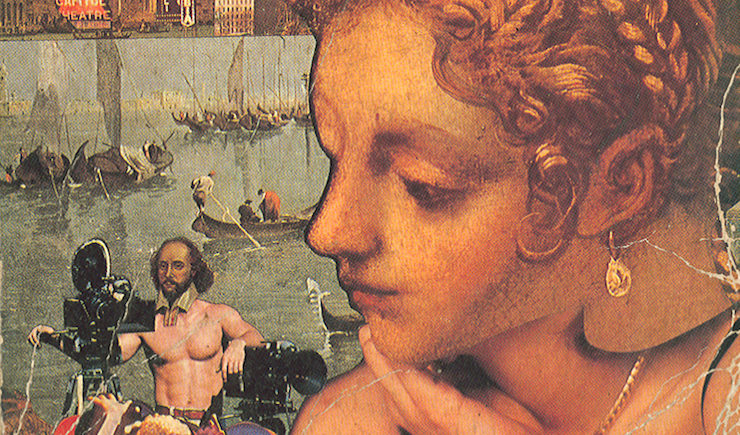
How about Sherri Tepper – her early books were wonderful !
@1 – I daresay Tepper will be covered when the series gets to “T”.
Although not in that order.
Do you really think that Dianna Wynn Jones is facing erasure?
Diana may not be as prominent outside the UK as she is here, but believe me, it’s going to be a LONG time before her British readers forget her.
DWJ is not the first bestselling author still in print he’s included in these essays, nor I suspect the last. If he didn’t include her, the entire comment thread would have been people shouting at the exclusion.
The battle is against the general erasure of Women writing SFF, not the erasure of a single specific woman. Just like the existence of Jones doesn’t negate the general erasure of women, the existence of the erasure of women doesn’t negate Jones.
As I got to the first footnote, I was vaguely thinking about making a snarky comment along the lines of “Cue posts by people ignoring James’s decade-and-last-name specifications in three, two, one…” — but I see the very first comment has already pre-empted that.
It does occur to me that putting the last-name ranges in the title of the article might help discourage such out-of-place comments a little more effectively than just burying them in the small type of a footnote….
Or not, since now that I look she didn’t publish any F&SF until the 1980s, unless ISFDB is missing data. (She also published a few poems in the 1960s, but either way didn’t start in the 1970s.)
Yay, someone other than myself is mentioning Eva Ibbotson on Tor.com! (I have plugged her work several times in comments.) I love her children’s fantasies, complete with ghosts, ogres, fantastic beasts and LOTS of good-hearted humor. My personal favorite is Island of the Aunts (I have copied, blown up and framed the map of the island), but I recommend most of the others: The Ogre of Oglefort, The Haunting of Granite Falls, The Beasts of Clawstone Castle, Which Witch? as well as The Great Ghost Rescue. I think they’re fun for adults, obviously, but if anyone is looking for a present for a middle-grade reader, you’re not likely to go wrong with an Ibbotson book.
@@.-@: Jones is at least deceased, which makes her books harder to find (not that they were common in the US until the 1990’s at least); some genre publishers don’t think expired authors sell. But note that James has listed authors of very high visibility — e.g. Cherryh (3 Hugos, ~70 books and counting, Worldcon GoH, …).
ISTM that part of “erasure” (perhaps not clear in his original declaration) is the cyberpunk manifesto, which speaks of how dull and regressive the 1970’s were. A large backlash to that trope (which still floats to the surface too often) comes from people (of all genders) who appreciate the huge number of women who broke into the field in that decade, and who feel that comment as a deliberate slight to the frequently more-subtle (but at least as fascinating) work those women were doing.
In some ways, The Secret of Platform 13 reads like a spoof of Harry Potter. Assorted magic characters are sent to find the long lost Chosen One (or crown prince, in this case. Same difference). They find the poor oppressed orphan living with the evil quasi-guardian and her spoiled rotten son to tell him that he is Special, he belongs to the Magic World where Everyone Knows Who He Is. He has a wonderful moment as it all makes sense, why he never fit in, why the Magic World seems to be practically calling to him.
Then, the magic characters realize they’ve got the wrong kid. The spoiled rotten kid is the one they want (I can almost see them walking down the hall calling, “Oh, Duuuudleeeeeey. . . .”).
Crowning Moment of Awesome in The Great Ghost Rescue [spoiler warning]: When the pale, weepy, too-young-for-boarding school, homesick kid is revealed to be a master of the martial arts.
And Diana Wynne Jones’ name shall be remembered so long as I’m around to carry the torch for her.
People would no more argue over the correct order of the Dalemark books than they would over the correct order of the Narnia books.
Eva Ibbotson is a delightful writer. For those who enjoy light fantasy and romance I’d recommend her adult novels like The Magic Flute and In the Company of Swans. While not fantasy they’re loosely based on or related to tales of the fantastic, and they’re warm and sweet and satisfying.
Yes, what about J K Rowling? :-)
Annoyingly, Gwyneth Jones’ remaining four novels in the “Bold as Love” quintet never got published in the USA, AFAIK. I quite liked her novel “Life”, which has not received much attention.
@10,
I’ve read that over 95% of authors, overall, go out of print after their deaths, and the problem is not unique to genre fiction.
@15,
Publishers are very mysterious beings, and US copyright laws were more than slightly arcane (they’re worse now). I’m old enough to remember that when browsing a UK bookstore, one would see the words like “not for sale or distribution in the US” on many works. I felt like a criminal bringing them through customs.
To Mr Nicoll,
I do rather notice that your list has been heavily biased towards anglophones; are you considering looking at women writing sf/f in other languages?
I am monolingual so am of little help where non-Anglophone authors are concerned (unless they’ve been translated).
She’s out of the period, barely, but one of my favorites was Jane Gaskell, who wrote the Atlan series in the 1960s. She also wrote a novel, “A Sweet Sweet Summer” that knocked my socks off. One reviewer said that it made ‘A Clockwork Orange’ look like ‘Winnie the Pooh’. Yeah.
Gwyneth Jones is one of my all-time favorites regardless of genre or gender. I first read her novel Divine Endurance when Arbor House released it here in 1987, 3 years after Allen & Unwin put it out in the UK, and I adored it. The 1993 sequel Flowerdust is weaker but is still good. Her Aleutian universe books are remarkable. These include the Aleutian Trilogy (White Queen, North Wind & Phoenix Café) which tell a First Contact story of social disruption on Earth when aliens land (on the Aleutian Islands, hence the series name). There are also some great short stories set in that universe, 4 collected in The Buonarotti Quartet (Aqueduct Press), with 2 later stories that have yet to be published in a Jones collection. There is a more recent novel called Spirit or The Princess of Bois Dormant which has only been published in the US as an ebook. It’s VERY well worth seeking out. I’m not as enamored of her 6 volume Bold as Love series as I am the rest of her work, but those books do reveal a deep love for the counter culture and the associated musical scene. Standalones Escape Plans, Kairos & Life (as cited by NancyP, above) are intense and very enjoyable. Her story collections, Identifying the Object & Grazing the Long Acre (PS Pub), are great. I have a 3rd collection, The Universe of Things, waiting on my to-be-read shelf. She published 2 excellent collections of essays & reviews, Deconstructing the Starships: Science, Fiction and Reality (Liverpool Uni Press) & Imagination/Space: Essays and Talks on Fiction, Feminism, Technology, and Politics (Aqueduct). I cannot recommend her work highly enough. Below is a link to John Clute’s review of Spirit, courtesy of The Wayback Machine.
https://web.archive.org/web/20090418081401/http://www.scifi.com:80/sfw/books/column/sfw19953.html